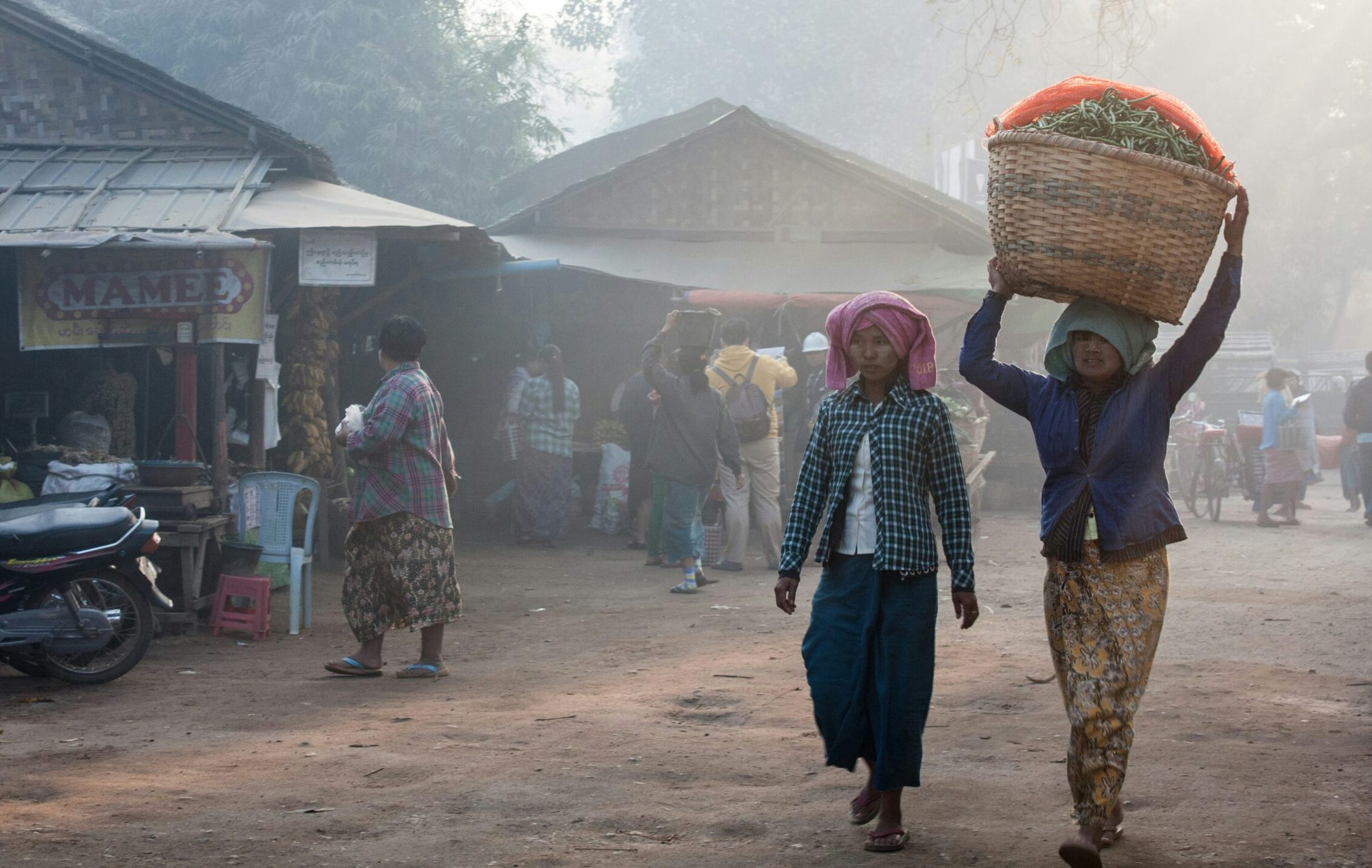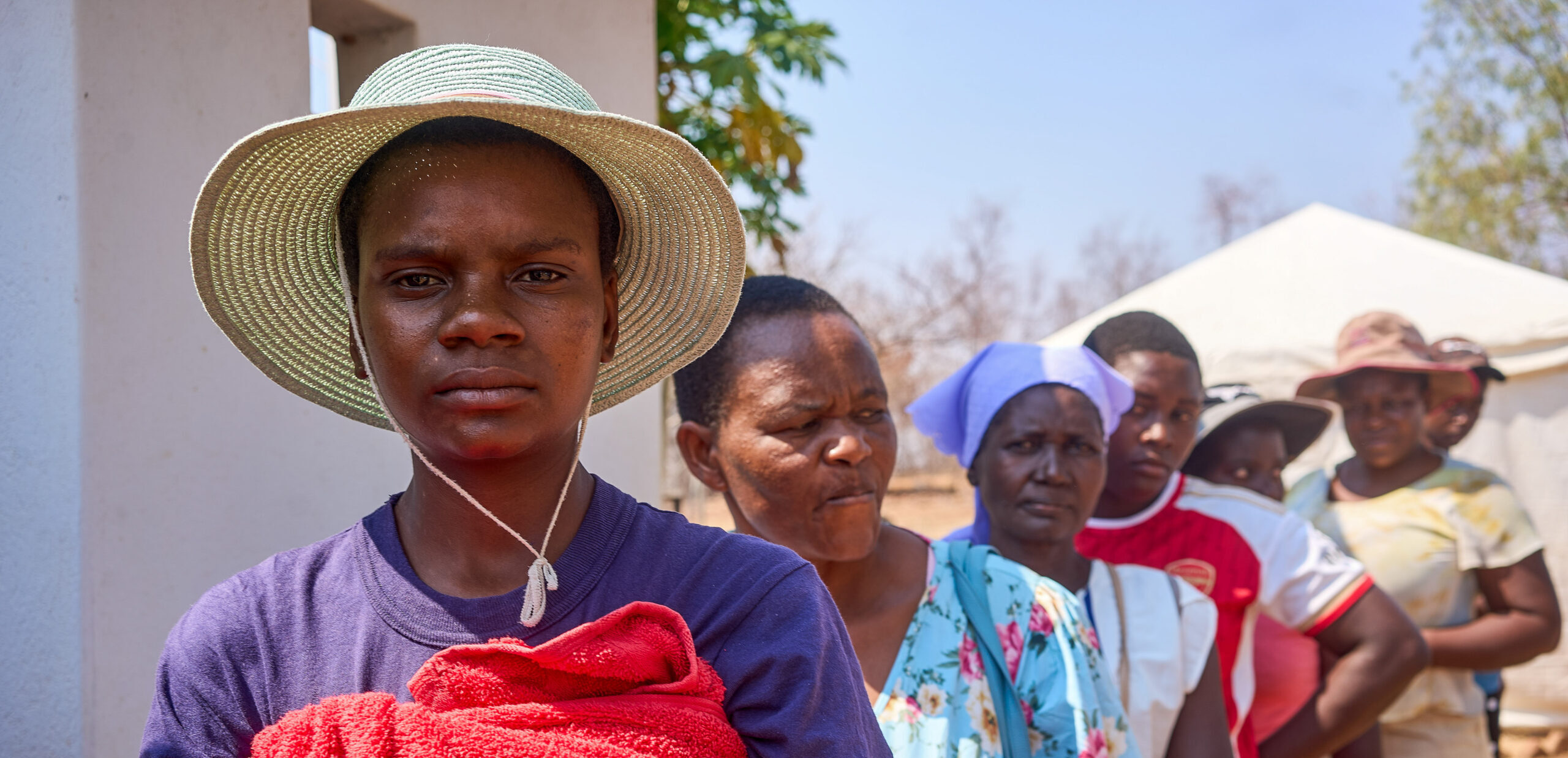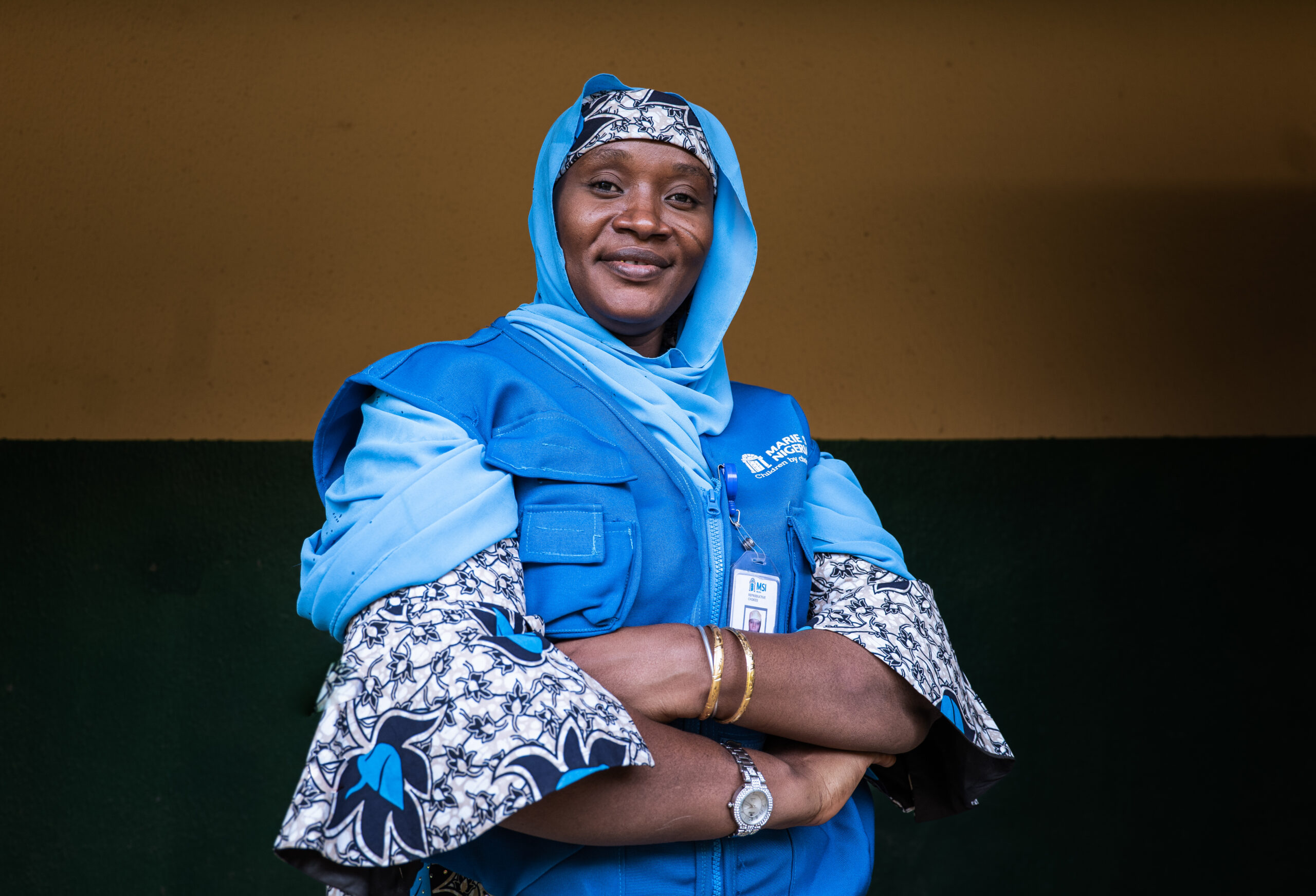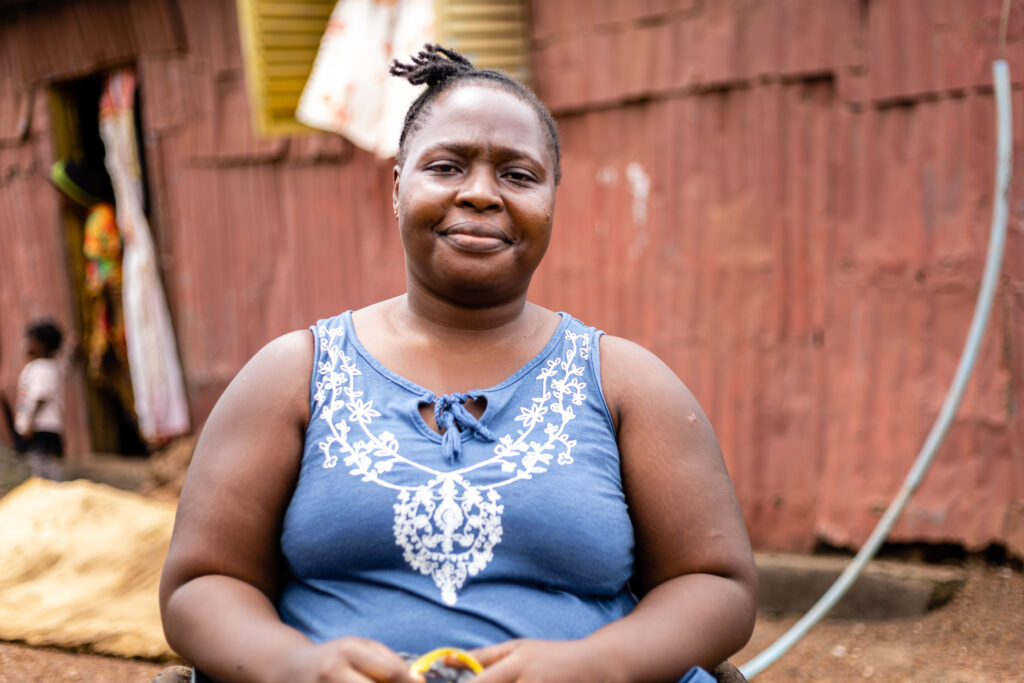
Everyone deserves the right to make their own choices about their bodies and futures.
Yet, many people with disabilities are still denied that choice. This International Day for Disabled Persons, we’re shining a light on how we can deliver inclusive healthcare, with three lessons on expanding access to reproductive health and rights for people with disabilities through WISH.
The Women’s Integrated Sexual Health (WISH) programme is the UK FCDO’s flagship sexual and reproductive healthcare programme, delivering services across 27 countries in Africa and Asia. A key aim of the programme is to ensure we leave no one behind, delivering access for communities often marginalised from healthcare, such as adolescents and people with disabilities.
People with disabilities are estimated to make up approximately 15% of the world’s population. Yet despite being one of the world’s largest minority groups, people with disabilities continue to face significant barriers to their sexual and reproductive health and rights. Through WISH, we have worked to change this and in West and Central Africa, where MSI leads the WISH consortium programme, we have partnered with Leonard Cheshire Disability to ensure our services are truly inclusive.
Before WISH, MSI estimated that roughly 1% of our clients in the West and Central Africa region were people with disabilities. But following our collaboration to expand access to sexual and reproductive health and rights for all, including people with disabilities, in 2020, nearly one in ten of our clients (9%) attending WISH services provided by MSI and partners was a person with a disability.
To mark the International Day of Disabled Persons, we are sharing how we got there, with the three main lessons we learned on delivering inclusive sexual and reproductive healthcare:
1. Nothing about us without us’ – partnering with Organisations of Persons with Disabilities to design inclusive services
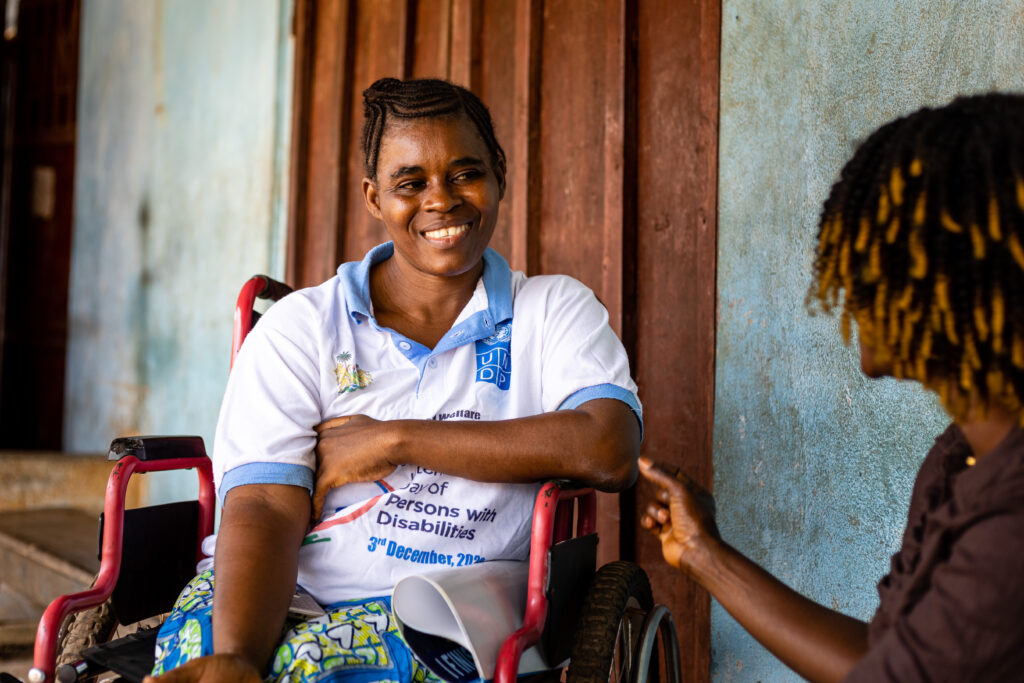
A challenge in delivering services that are inclusive of marginalised communities is that too often, the community is excluded from programme design. To change this, across the WISH consortium, we have partnered with local Organisations of Persons with Disabilities (OPDs) to ensure the voices of people with disabilities are heard in service design and delivery.
In Sierra Leone, MSI worked with Leonard Cheshire, design partner ThinkPlace and the Sierra Leone Union on Disability Issues (SLUDI) to adapt MSI’s services. Taking a human-centred design approach, Leonard Cheshire and SLUDI supported MSI Sierra Leone to conduct community engagement workshops, where we heard from people with disabilities about their experiences accessing services and consulted the ODP on how MSI should adapt to be more inclusive.
Following the workshop, we developed several prototype interventions for MSI’s mobile outreach teams in Sierra Leone. These included our Inclusive Services Guide, a handbook for Outreach teams and providers to aid their approach to delivering inclusive services, as well as Rumour Cards, assisting outreach teams and community-based mobilisers to facilitate conversations about disability and reproductive healthcare and debunk any misinformation. The result was tailored, inclusive services that were well received by clients. As one woman with a disability, who accessed a service with MSI Sierra Leone shared: “they treated us like queens.”
Guidance on how we can effectively partner with Organisations of Persons with Disabilities is available via the Leonard Cheshire website, along with a guide to conducting community engagement workshops with people with disabilities.
2. Empowering care for all – addressing social and cultural norms around disability
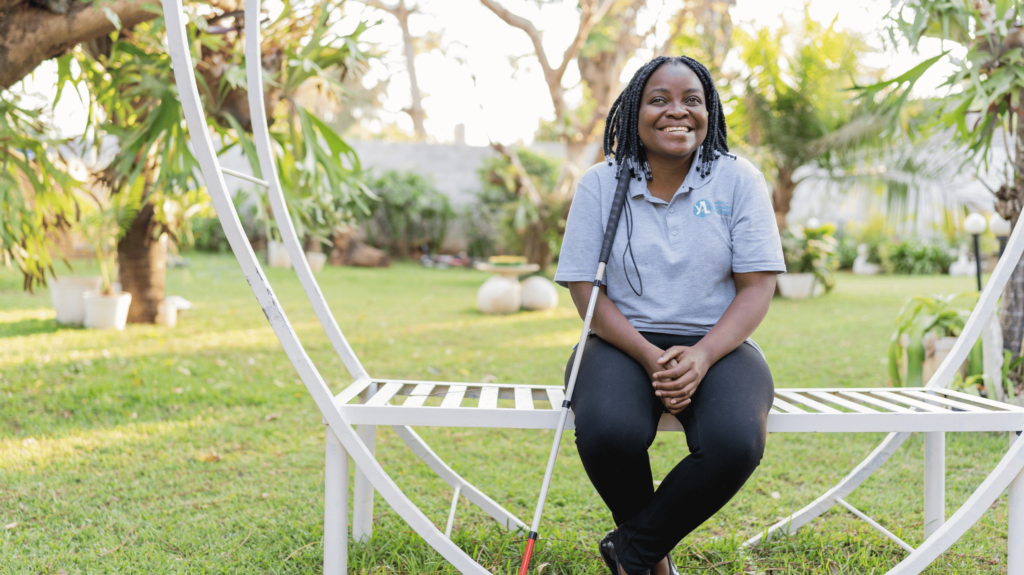
Through WISH, we learned the scale of misinformation and stigma around sexual and reproductive healthcare and rights for people with disabilities, both at a community and provider level. To challenge this, we worked to increase awareness of the range of sexual and reproductive healthcare services available to people with disabilities, including safe abortion where permitted, and the right to empowering care, for all.
At a provider level, through our partnership with Ipas and Leonard Cheshire, we developed a values clarification attitudes and transformation (VCAT) toolkit on disability inclusion. This toolkit supported workshop participants, such as MSI service providers, to explore their values and any prejudices they may have around sexual and reproductive healthcare provision and disability. As a result, participants could recognise and address any negative assumptions or behaviours towards clients with disabilities and provide client-centred, de-stigmatising care for all.
At a community level, we partnered with people with lived experience of disability to build awareness, such as Zainab – our community-based mobiliser in Sierra Leone. As a woman with a disability, Zainab is committed to building awareness of inclusive sexual and reproductive healthcare services and challenging harmful social norms. Zainab shared: “People with disabilities in my community now have the confidence to inquire and I can talk to them about services.”
3. Informed choices – tailoring materials to be accessible
Finally, we needed to ensure that clients with disabilities were supported to make informed reproductive choices, with materials that are accessible and easy to read. To do so, we worked with Leonard Cheshire to identify how our client-facing materials and communications could be more accessible, including of low literacy audiences.
As MSI’s client-facing materials are often developed bespoke for each country programme and cultural context, we partnered with Leonard Cheshire to deliver global guidance and training for our country programmes on creating and adapting existing resources to be accessible.
Covering guidance on how to adapt language and design, and the principles of creating “Easy-Read” resources, our programme teams adapted materials, such as our Choice Pic visual guide, supporting low-literacy clients to understand their contraceptive options and potential side effects. With these, we can support all clients to make the informed reproductive choices that are right for them.
We are hugely thankful to the partner organisations, Organisations of Persons with Disabilities, and workshop participants, whose expertise and insights allowed us to design these inclusive programmes through WISH, as well as the UK’s FCDO for funding the work.
We hope by sharing these lessons today, on the International Day of Disabled Persons, we can inspire others to implement services that are inclusive for all, too. After all, it is only when we all have the right to determine our own choices and futures that we can achieve a fairer world for all.
You can view our full list of commitments on disability-inclusive programming via the Global Disability Summit website.
It only costs £6 per year – or 2 pence per day – for MSI to provide someone with life-changing reproductive healthcare, giving them the power to decide if or when to become pregnant. This reproductive choice helps keep girls in school, supports women to lead, and helps build more equal communities. Support our work to enable reproductive choice globally.






